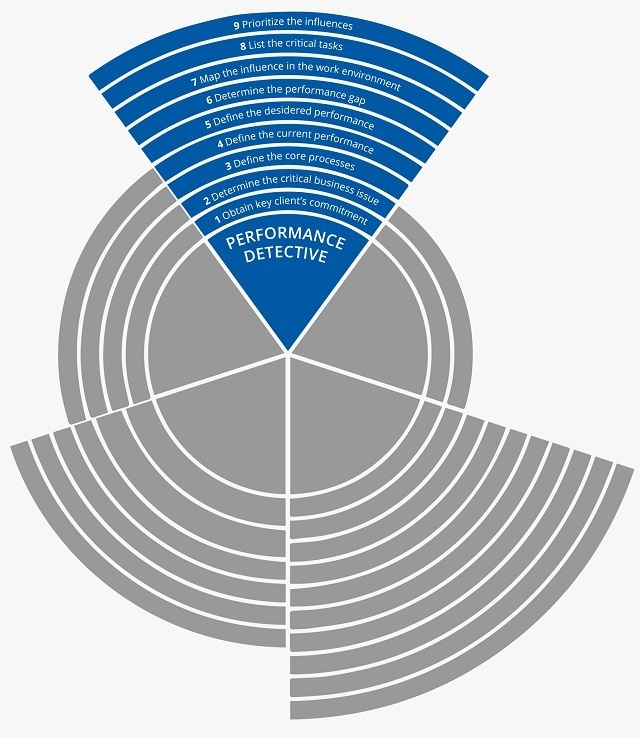70:20:10 Model Part I: Performance Detective
The current roles in most Learning and Development functions are primarily educational and focused on designing, developing and delivering formal learning or development solutions (the ‘10’).

To deliver effective 70:20:10 outputs, Learning and Development teams will be required to take on totally new sets of processes, roles, and tasks, according to the 70:20:10 Institute. These changes are essential to effectively use 70:20:10 principles and support business performance.
The overview of the new roles described here demonstrates how 70:20:10 has the potential to make L&D professionals and their Learning and Development departments more effective in preparing for the future in alignment with business strategy. Note that all of these concepts are outlined in the 70:20:10 Institute’s free eBook, Designing Learning That Works: Using 70:20:10 Effectively.
In this 3-part article, we focus on the first 3 roles of our 70:20:10 framework: The Performance Detective, the Performance Architect, and the Performance Master Builder.

Let’s start with the role of Performance Detective.
The Performance Detective: Aligning With The Business And Organization Strategy
The Performance Detective role analyzes performance problems in a systematic way. This involves carrying out business, performance and influence analysis whose outcomes provide the input for the Performance Architect.

The Performance Detective doesn’t analyze training needs. This role analyzes business and performance needs. This is the main reason the role of the Performance Detective is the starting point of the 70:20:10 framework. It is to align L&D focus with the core business. The work of the Performance Detective is not to identify learning needs, but to enable organizational performance improvement.
“Human performance improvement is quite simple, though over the years we’ve made it more complicated than necessary. It is time to uncomplicate the process and teach more managers and L&D professionals the art and science of being a Performance Detective.” - Dennis Mankin, Performance Detective
In our next two articles we will focus on the roles of Performance Architect and Performance Master Builder.
For more on how to use the 70:20:10 model effectively, download the free eBook Designing Learning That Works: Using 70:20:10 Effectively. The eBook is written by the 70:20:10 Institute’s co-founders Charles Jennings and Jos Arets and is co-sponsored by Docebo.
Related Articles:
- Free eBook - Designing Learning That Works: Using 70:20:10 Effectively
- 70:20:10 Model – Part II: Framework And The Role Of The Performance Architect
- 70:20:10 Model – Part III: Framework And The Role Of The Performance Master Builder








